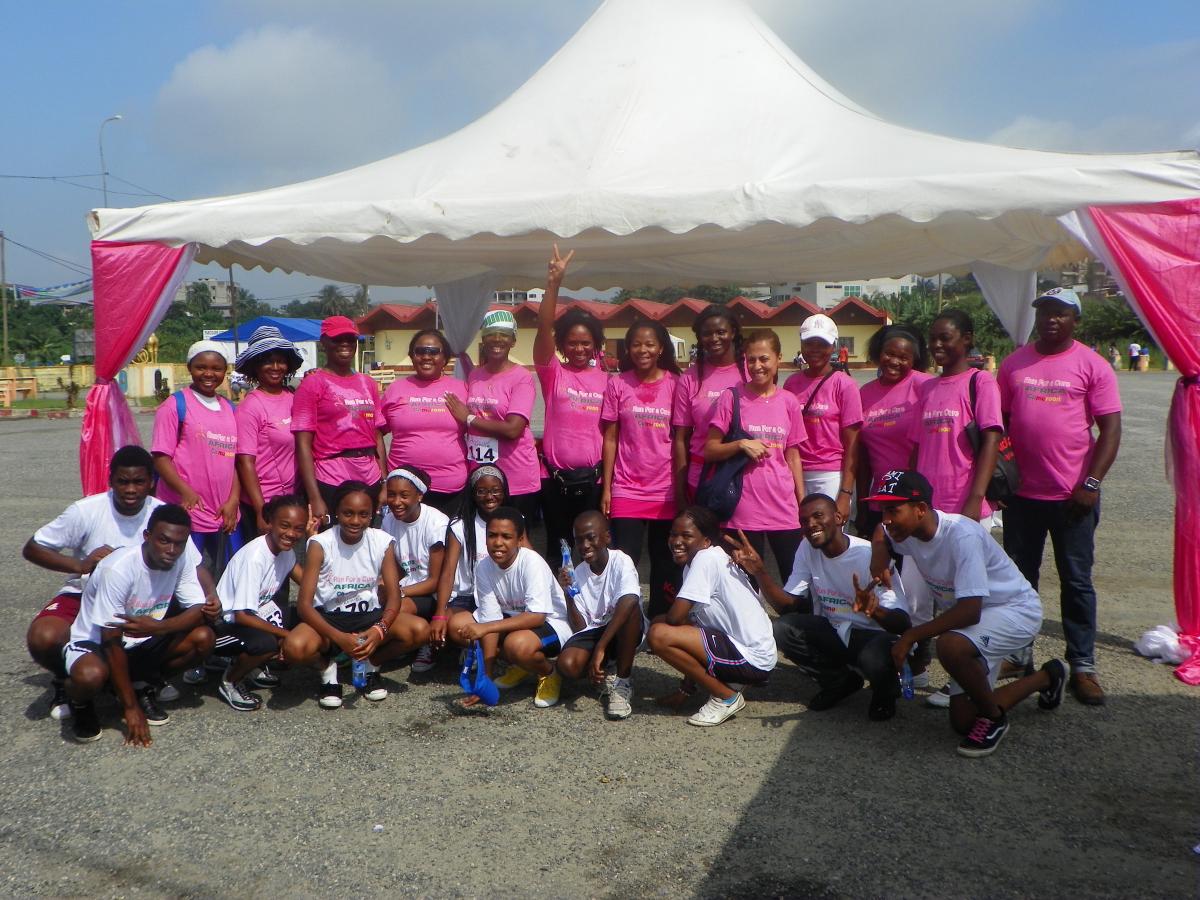 W4 interviews Virginie Bopda of Run For a Cure Africa, an NGO working in Nigeria and Cameroon to reduce the stigma that surrounds breast cancer and to provide free screenings to impoverished local women, with the vision of “turning the current breast cancer mortality rate in Africa [80%] into the breast cancer survival rate”.
W4 interviews Virginie Bopda of Run For a Cure Africa, an NGO working in Nigeria and Cameroon to reduce the stigma that surrounds breast cancer and to provide free screenings to impoverished local women, with the vision of “turning the current breast cancer mortality rate in Africa [80%] into the breast cancer survival rate”.
Today, if a woman residing somewhere in the Global North—such as North America, Sweden or Japan—is diagnosed with breast cancer, she has an approximately 80% chance of beating the disease, thanks to increased awareness, accessible and high quality healthcare facilities, and early detection programs. However, a woman living in the Global South does not benefit from these circumstances and advantages—and she can therefore be up to four times less likely to survive. In Nigeria the breast cancer survival rate is, at 20%, tragically low. But a number of determined women and men have decided that enough is enough and are racing to increase women’s rate of survival.
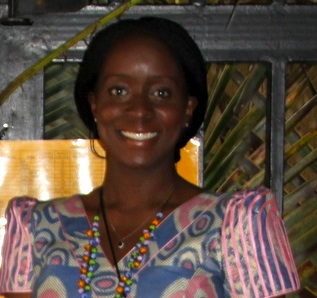 NGO Run For a Cure Africa was launched in Nigeria in 2009 by Ebele Mbanugo, whose own mother endured a hard two-year battle against breast cancer—a battle that ended in recovery thanks to treatment in the United States offered by the Susan G. Komen for the Cure Foundation. Her mother’s struggle and eventual triumph left Ebele acutely aware of the life-and-death consequences of unequal access to treatment available to cancer patients in Nigeria—indeed, across the entire continent of Africa. Shocked that women in her own country were needlessly dying from a disease that can—as she herself had seen—be beaten, Ebele rallied colleagues and friends to join her ambitious mission to transform Nigeria’s tragic 80% mortality rate into an 80% survival rate.
NGO Run For a Cure Africa was launched in Nigeria in 2009 by Ebele Mbanugo, whose own mother endured a hard two-year battle against breast cancer—a battle that ended in recovery thanks to treatment in the United States offered by the Susan G. Komen for the Cure Foundation. Her mother’s struggle and eventual triumph left Ebele acutely aware of the life-and-death consequences of unequal access to treatment available to cancer patients in Nigeria—indeed, across the entire continent of Africa. Shocked that women in her own country were needlessly dying from a disease that can—as she herself had seen—be beaten, Ebele rallied colleagues and friends to join her ambitious mission to transform Nigeria’s tragic 80% mortality rate into an 80% survival rate.
For the past three years, Ebele and her team have organized running races in the former Nigerian capital of Lagos, with the joint aim of increasing awareness of breast cancer and raising money for the education, screening, and treatment of local impoverished women. “It started off as an experiment,” says Run For a Cure Africa’s Virginie Bopda, “and we had no idea that it would grow so rapidly.” Open to both men and women, the Run For a Cure race series has continued to grow, with the 2012 race attracting one thousand runners and inspiring other awareness-building events, such as the Mother’s Day “Big Hat Brunch”, an uplifting social forum for the cause.
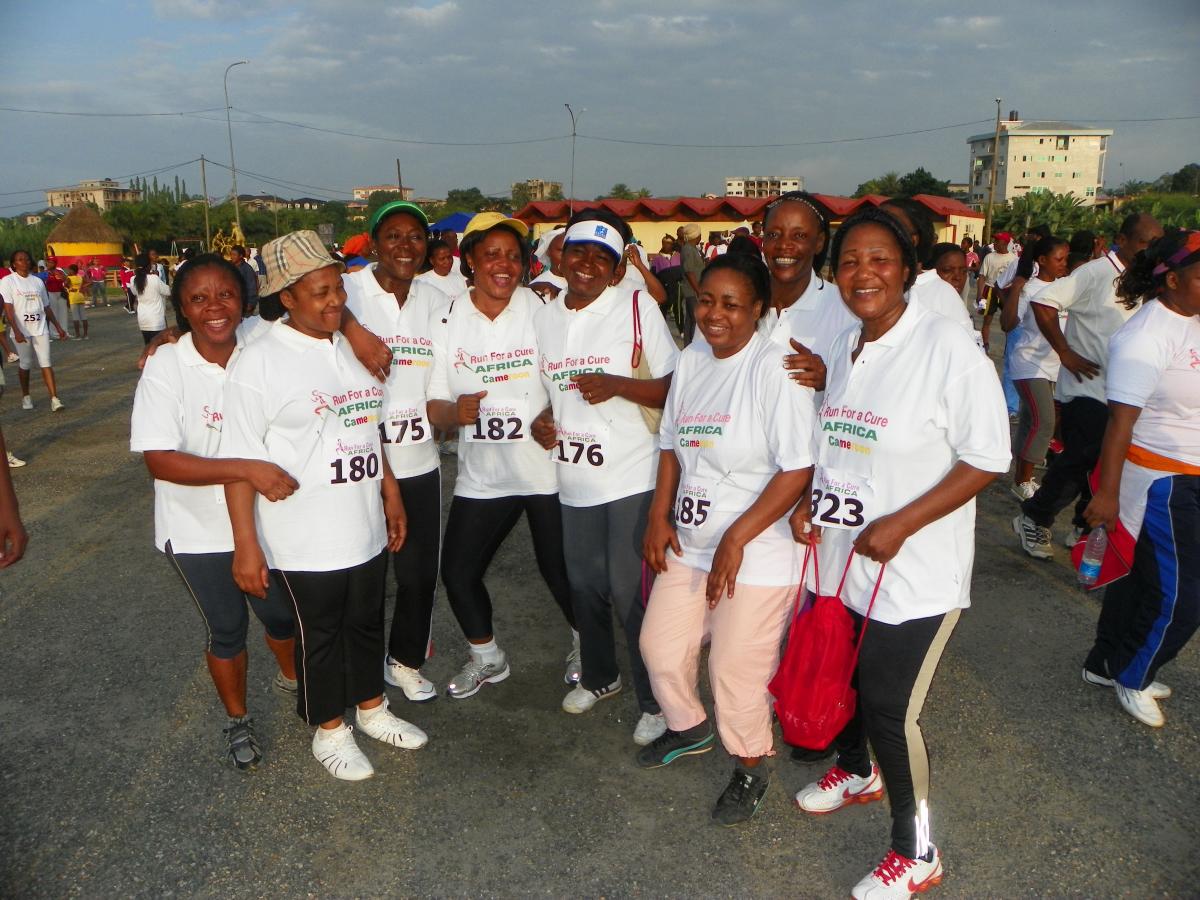 Recognizing that the obstacles to survival faced by Nigerian women were the same for women across much of Africa, Run For a Cure Africa soon extended its work into neighboring Cameroon – Virginie’s home country. In both countries, a fundamental challenge was the lack of available information about breast cancer, in part owing to a shroud of silence created by stigma and taboo. “Personally, I had never heard anyone talk about cancer in Cameroon,” Virginie explains. “As soon as the project started, I began talking about it to people I met – they would come up to me and say, ‘Hang on, I know so-and-so who’s ill, and so-and-so as well […] I had no idea there were so many people who were sick.’ People don’t know. It’s a taboo. In Africa, cancer in general is a taboo. We don’t talk about it. And it’s not only underprivileged women that need to be taught; educated women are often just as unaware.”
Recognizing that the obstacles to survival faced by Nigerian women were the same for women across much of Africa, Run For a Cure Africa soon extended its work into neighboring Cameroon – Virginie’s home country. In both countries, a fundamental challenge was the lack of available information about breast cancer, in part owing to a shroud of silence created by stigma and taboo. “Personally, I had never heard anyone talk about cancer in Cameroon,” Virginie explains. “As soon as the project started, I began talking about it to people I met – they would come up to me and say, ‘Hang on, I know so-and-so who’s ill, and so-and-so as well […] I had no idea there were so many people who were sick.’ People don’t know. It’s a taboo. In Africa, cancer in general is a taboo. We don’t talk about it. And it’s not only underprivileged women that need to be taught; educated women are often just as unaware.”
It is a daunting mountain to climb: in addition to the challenge of educating people about cancer, there are also the familiar, difficult obstacles of poverty, a dearth of medical facilities, and the exorbitant cost of providing treatment. “Specialised care is unavailable to the majority of African women, and many do not even have access to screenings. The little care that is available is beyond the means of your average African woman. A mammogram in Cameroon costs between 30,000 and 35,000 CFA francs – that is, about $70 or €50-60” – exceeding what most Cameroonians earn in a whole month.
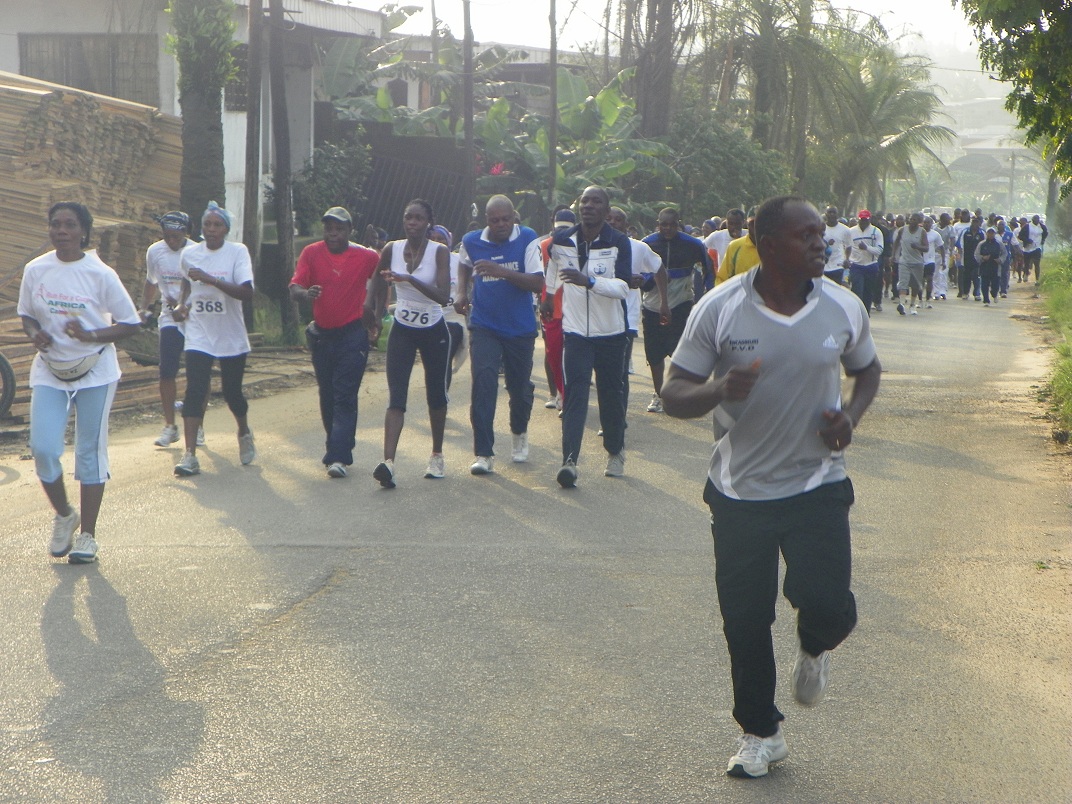 While the Run For a Cure races have helped significantly in breaking the taboo, generous donations and corporate sponsorship have also enabled the team in Nigeria to purchase two mammogram machines that will provide free screenings for 500 women a year at the Lagos University Teaching Hospital. Its first session of free screenings screened more than 100 women. “The fact that women are coming forward tells us that we are responding to an enormous need,” says Virginie.
While the Run For a Cure races have helped significantly in breaking the taboo, generous donations and corporate sponsorship have also enabled the team in Nigeria to purchase two mammogram machines that will provide free screenings for 500 women a year at the Lagos University Teaching Hospital. Its first session of free screenings screened more than 100 women. “The fact that women are coming forward tells us that we are responding to an enormous need,” says Virginie.
Despite its progress, Run For a Cure Africa is not yet at the stage where it can fully cover the costs of treatment. “If a woman is diagnosed with cancer during a free screening, what do we do? If we cannot fund her treatment, what’s the point?” Virginie asks. “At the same time, it’s better that women know, that they understand the implications and perhaps have the chance to do something about it. You know, African families never abandon one of their members […] the family will pull together to find the money for a treatment if they possibly can. We’re going to help the women that we can, in the hope that the government and their family will then contribute.”
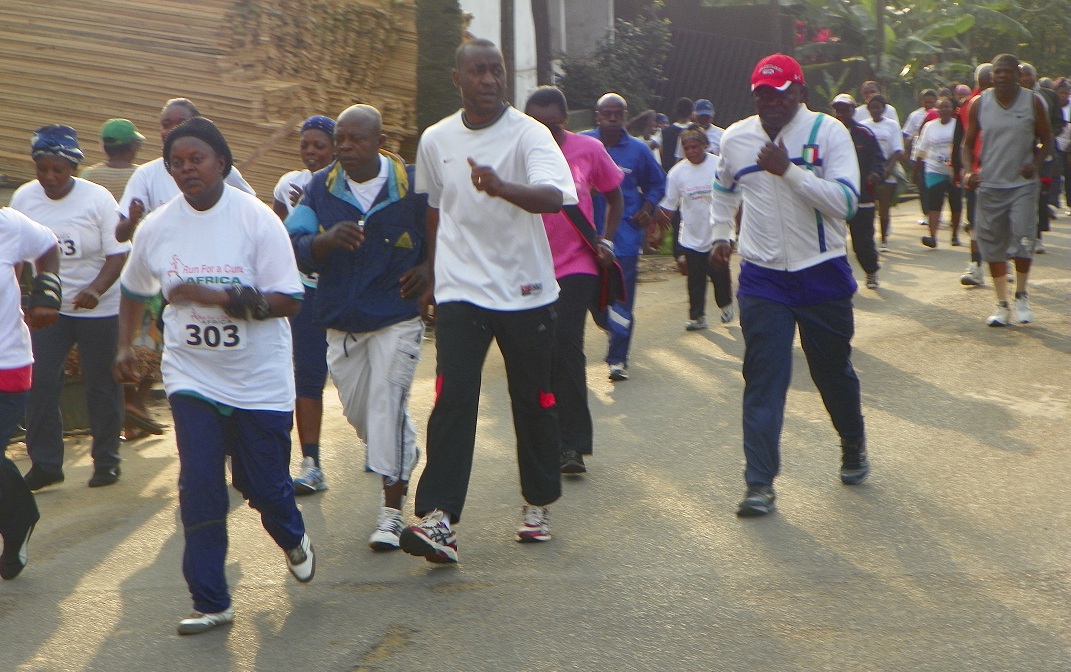 In order to help women in their battles against breast cancer, Run For a Cure Africa has adopted the ambitious target of educating all Nigerians and Cameroonians about breast cancer within ten years. It will require the help of men, too, as Virginie explains: “If men don’t know about the disease themselves, how can they support their loved ones?”
In order to help women in their battles against breast cancer, Run For a Cure Africa has adopted the ambitious target of educating all Nigerians and Cameroonians about breast cancer within ten years. It will require the help of men, too, as Virginie explains: “If men don’t know about the disease themselves, how can they support their loved ones?”
Encouragingly, despite the enormous challenges, there is a feeling that the Run For a Cure Africa team is engaged in a winning race against death. Today, in the twenty-first century, the sheer luck of a woman’s geography and other circumstances should not decide whether she lives or dies from a beatable disease. Run For a Cure Africa deserves our support as it works courageously to turn the dream of breast cancer survival into a reality for more women in the world.
© Women’s WorldWide Web 2013













